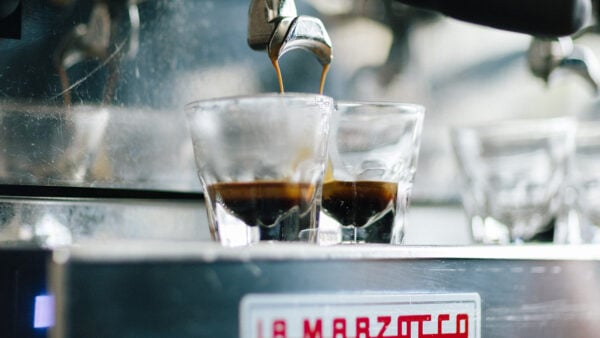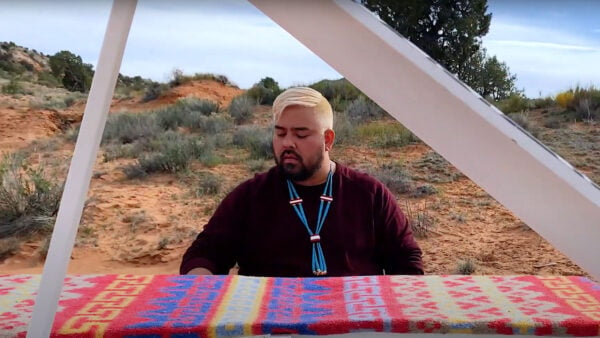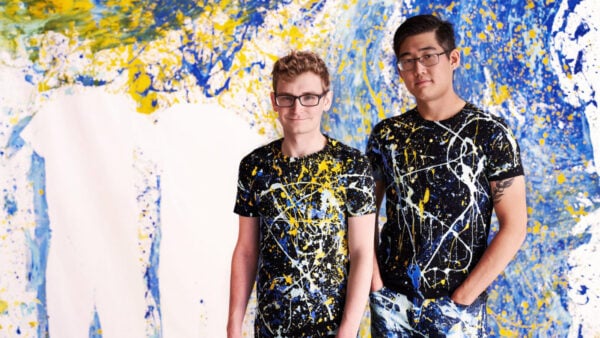For naysayers who think classical music is on the decline, these Chicago-based performing groups offer the perfect response. All founded in the past three years, they’re offering fresh takes on repertoire familiar and unfamiliar, expanding the musical canon and enlivening the musical life of our city.
Artemisia Trio
Year founded: 2016
Recommended for: full-time wanderlusters with eclectic tastes
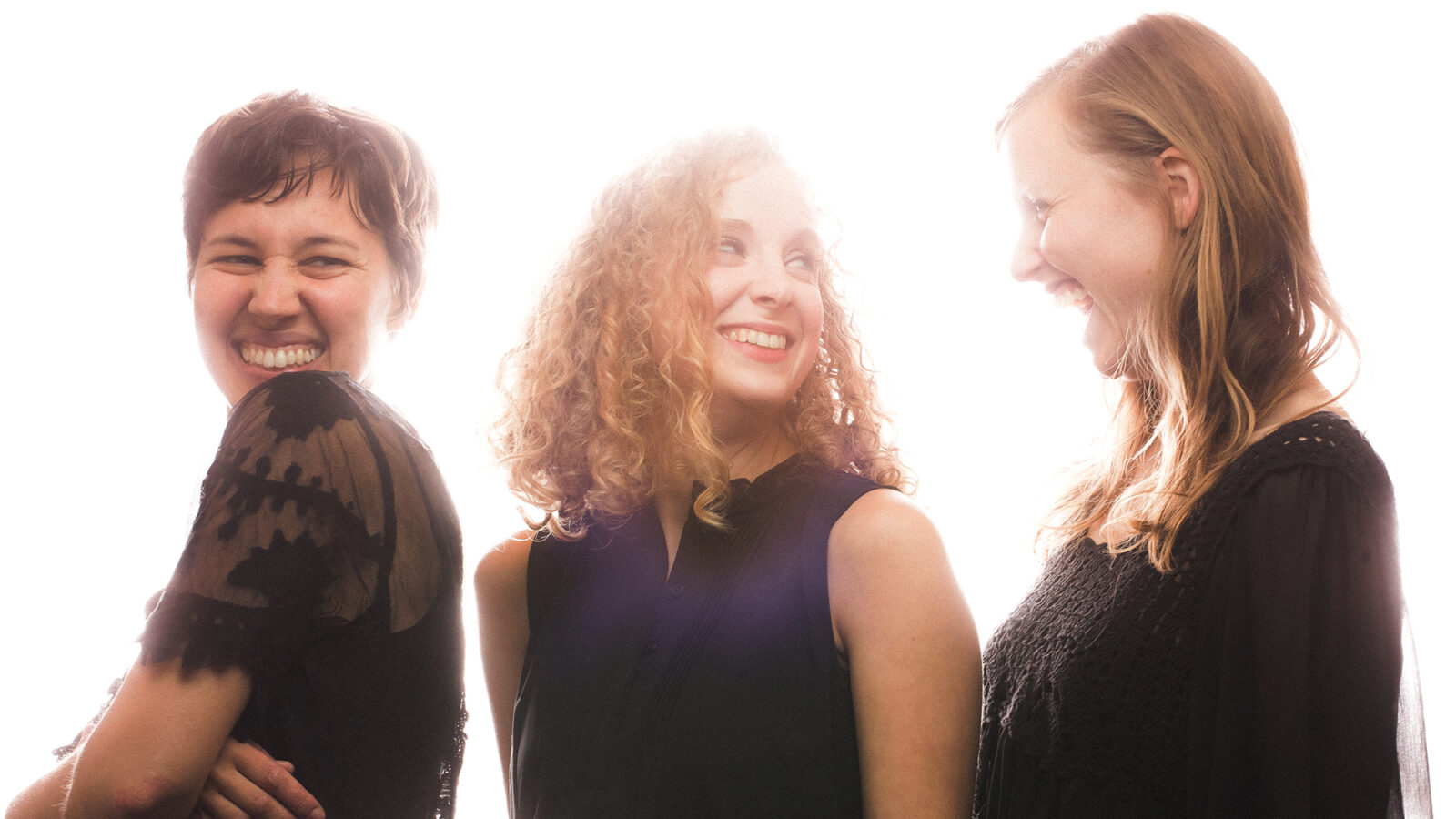
Artemisia Trio (Photo: Joe Mazza)
Kaitlin Foley, Alexandra Olsavsky, and Diana Lawrence were drawn together by their passion for music outside the confines of the Western repertoire, especially songs that champion women. The group's name is a triple nod to the goddess Artemis, the Greek queen Artemisia I of Caria, and the Renaissance painter Artemisia Gentileschi.
You can catch this adventurous threesome performing music as far-flung as Corsican chant, a First Nations lullaby, Georgian folk music, and world premiere works — often on the same program.
So, is there any music Artemisia won’t perform? Nope, says member and singer-songwriter Diana Lawrence. “We’re in this group together to perform the unexpected — to push the boundaries of what’s expected when you see three women onstage, and make people ask questions,” she says. Visit website
D-Composed
Year founded: 2017
Recommended for: multitaskers who care about equity in the arts
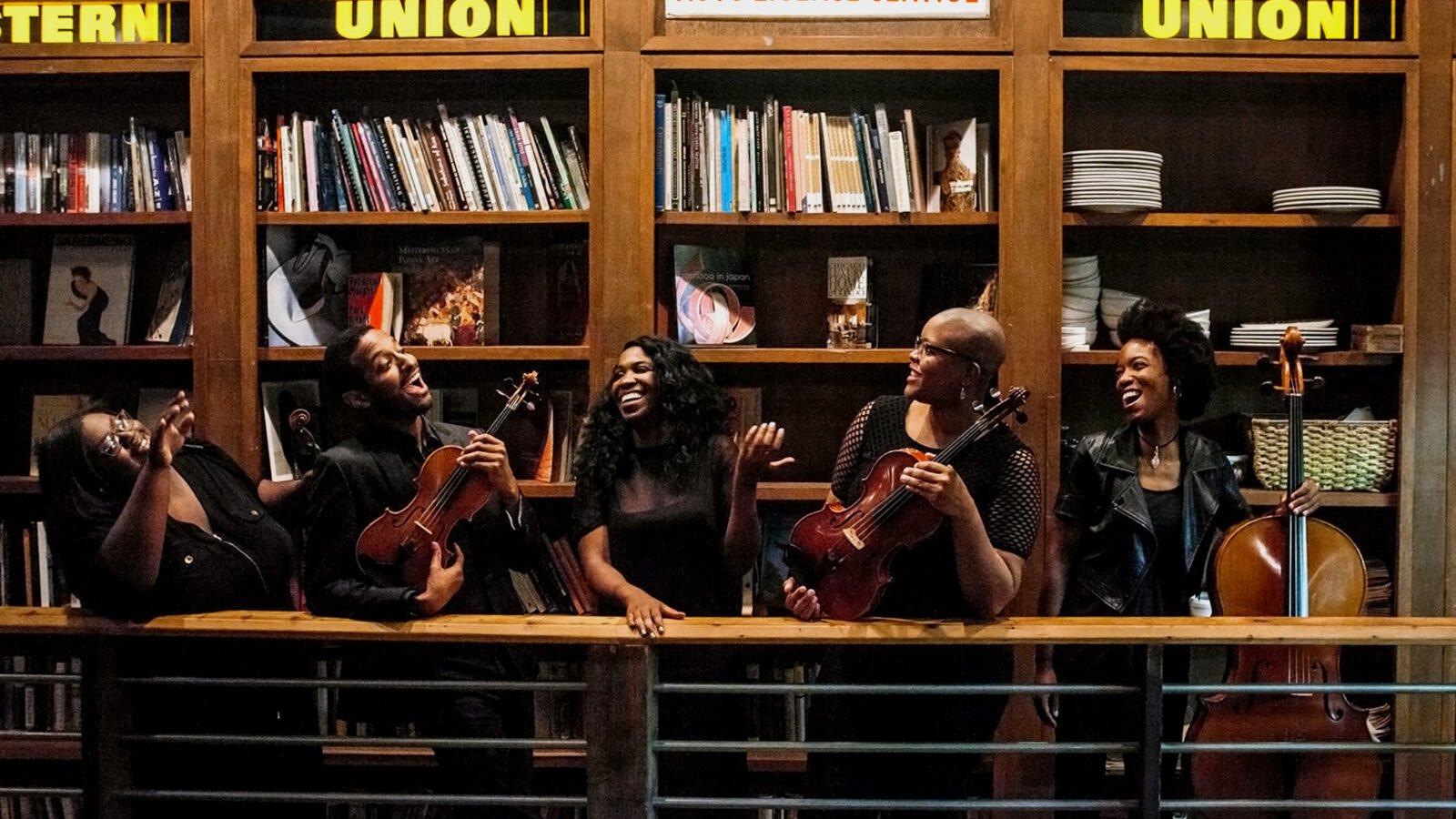
The artists of D-Composed: (L-R) Caitlin Edwards, violin; Kyle Dickson, violin; Kori Coleman, founder and experience curator; Danielle Taylor, artistic director and viola; Tahira Whittington, cello (Photo: Ally Almore)
Kori Coleman and Danielle Taylor knew they wanted to start an initiative that celebrated the music of the African diaspora, but they were dissatisfied with the stuffiness of the concert-going experience. D-Composed, their string quartet series, offers a new model, combining themed programs with audience-centered activities. Previous concerts have brought in a mixologist to make custom drinks accompanying the pieces played, or combined a yoga class with live performance.
“With all our experiences, we try very hard to be part of the audience, instead of just this spectacle that people are watching,” says Coleman.
Coleman and Taylor envision the group expanding both D-Composed’s instrumentation and its concert base. In January 2019, they established D-Composed Gives, a nonprofit arm which aims to give free performances in underserved communities. Visit website
Evanston Chamber Opera
Year founded: 2018
Recommended for: those who want to experience storefront opera without going into the city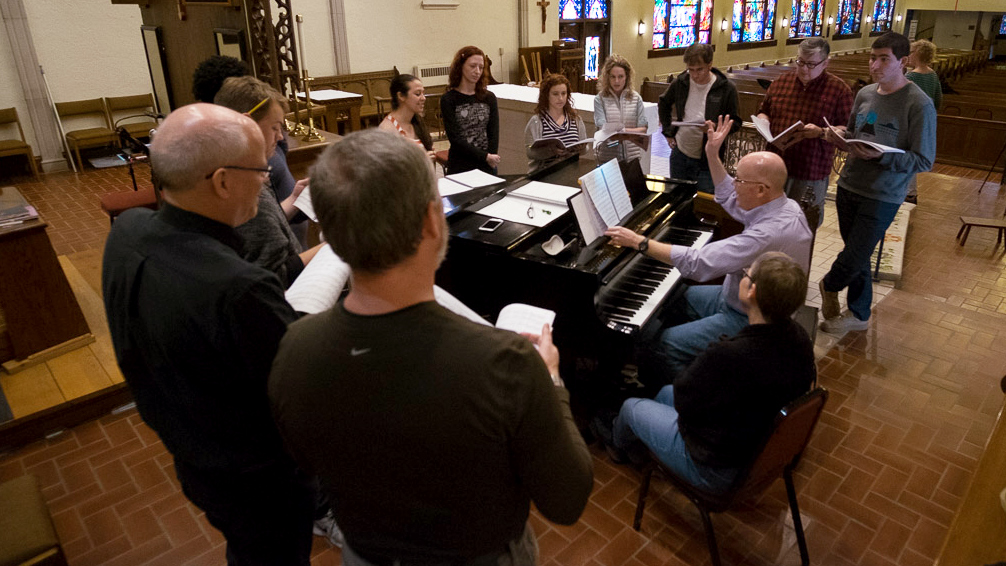 Evanston Chamber Opera (EChO) started as a one-off in December 2016, when it premiered Francis Lynch’s nativity opera, Joseph’s Gift. The experience ended up being so enjoyable that the company formalized in 2018. Lynch became the group’s resident composer, while the musical talent was cast from a pool of talented emerging professional singers in the Chicago area.
Evanston Chamber Opera (EChO) started as a one-off in December 2016, when it premiered Francis Lynch’s nativity opera, Joseph’s Gift. The experience ended up being so enjoyable that the company formalized in 2018. Lynch became the group’s resident composer, while the musical talent was cast from a pool of talented emerging professional singers in the Chicago area.
EChO has also begun dusting off little-known works by famous composers, as it will this season with Georges Bizet’s Doctor Miracle and Ermanno Wolf-Ferrari’s Susanna’s Secret.
“It’s our mission to do lesser-performed works, whether opera, operetta, or any other theatrical works that are mostly music,” says artistic director James Janssen. “We don’t want to limit ourselves.” Visit website
5th Wave Collective
Year founded: 2018
Recommended for: anyone who last went to a concert and wondered where all the women composers were
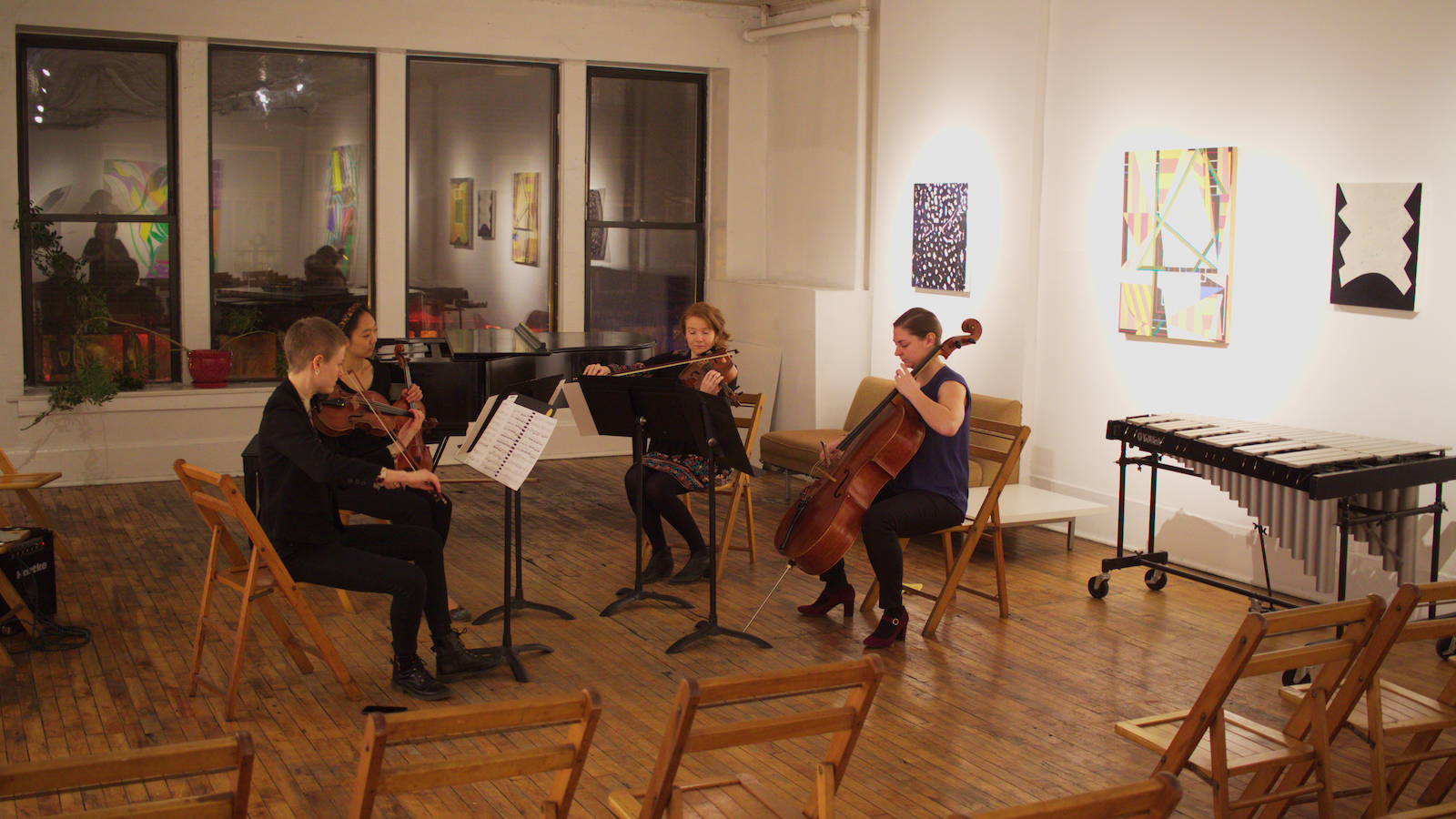 During an oboe studio class at DePaul, Ashley Ertz remembers a peer working on a piece by Clara Schumann, cuing a class discussion about gender equity in music. Afterward, Ertz rushed home and tallied all the works for oboe she could find by non-male composers.
During an oboe studio class at DePaul, Ashley Ertz remembers a peer working on a piece by Clara Schumann, cuing a class discussion about gender equity in music. Afterward, Ertz rushed home and tallied all the works for oboe she could find by non-male composers.
“So, I like to say 5th Wave got started out of a spreadsheet,” jokes the founder and artistic director.
That Excel sheet blossomed into an industrious collective that has, to date, performed works by some 50 female composers, in configurations ranging from solo instruments to chamber orchestra. The collective’s work is even being noticed outside Chicago: In 2019, 5th Wave was invited to participate in the Boulanger Initiative’s inaugural WoCo Festival in Washington, D.C. Visit website
Grossman Ensemble
Year founded: 2018
Recommended for: new music fans who want to see all their favorites in one place
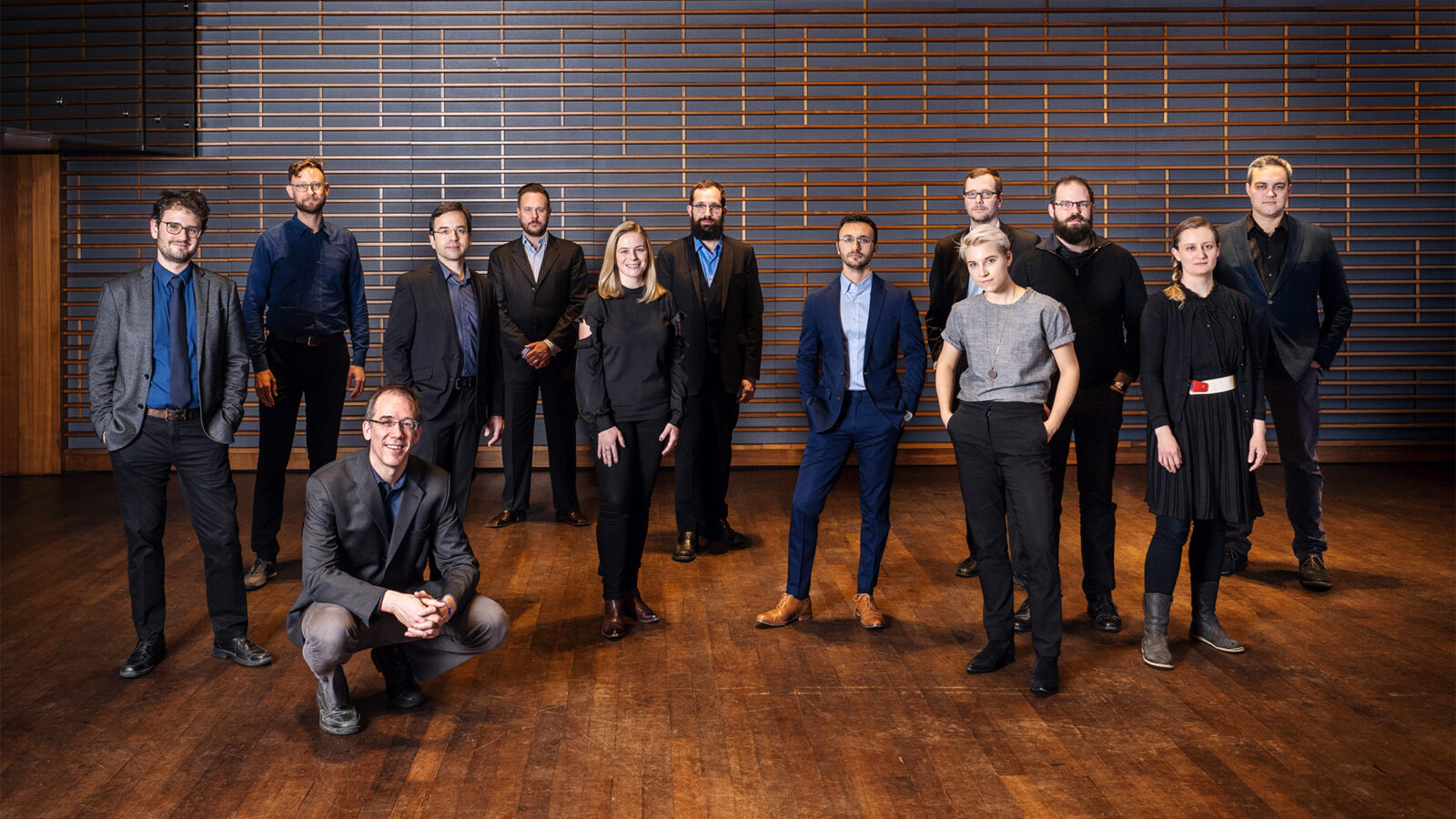
Grossman Ensemble (Photo: Grittani Creative LTD)
As the ensemble-in-residence for the brand-new Chicago Center for Contemporary Composition (CCCC), the Grossman Ensemble workshops pieces by composers from around the globe. But there’s a twist: the ranks of the Grossman Ensemble remain static. All the music composed for the group is written for the same instrumentation: flute, saxophone, oboe, horn, piano, harp, percussion, and string quartet.
“It’s a little sinfonietta, but with its own twist,” says CCCC founder and director Augusta Read Thomas.
Composers convene on the University of Chicago’s Hyde Park campus and receive generous rehearsal time to test out their works with a veritable new music supergroup. The collective counts Chicago’s premier new-music specialists among its ranks, including members of Spektral Quartet and Ensemble Dal Niente. Visit website
His Majesty’s Men
Year founded: 2016
Recommended for: anyone who gets shivers from hearing straight-tones
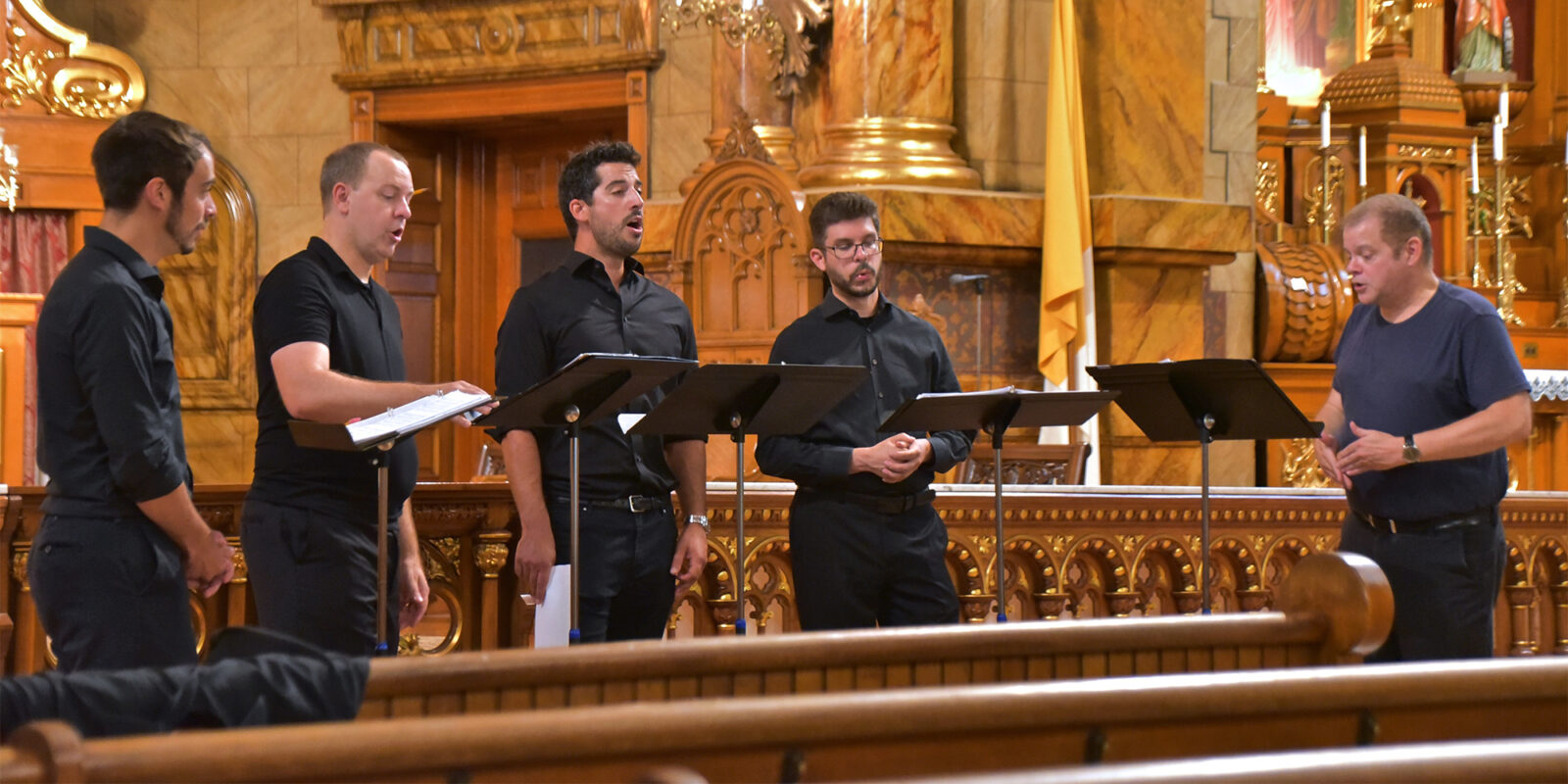
His Majesty's Men (Photo: David Christiansen)
Choral buffs attracted to the limpid tones of British chamber choristers may find a local analogue in His Majesty’s Men. Under the leadership of countertenor Richard Childress, this group infuses its practice with coveted traditions from across the pond, (Childress is a regular member of Winchester Cathedral Choir).
Though the intimate ensemble certainly gravitates towards Renaissance polyphony and other early sacred music, it also commissions and performs new works which engage the sensibilities of those repertoires, or which fit the choir’s unique configuration: one countertenor, one tenor, two baritones, and a bass, occasionally joined by an additional countertenor or tenor.
“We only have five or six voices — we don’t really have a stable bigger than that,” says tenor Matthew Dean. “We like the purity and balance of the one-on-a-part experience.” Visit website
Stare at the Sun
Year founded: 2018/19
Recommended for: anyone interested in the cutting-cutting-edge of new choral repertoire
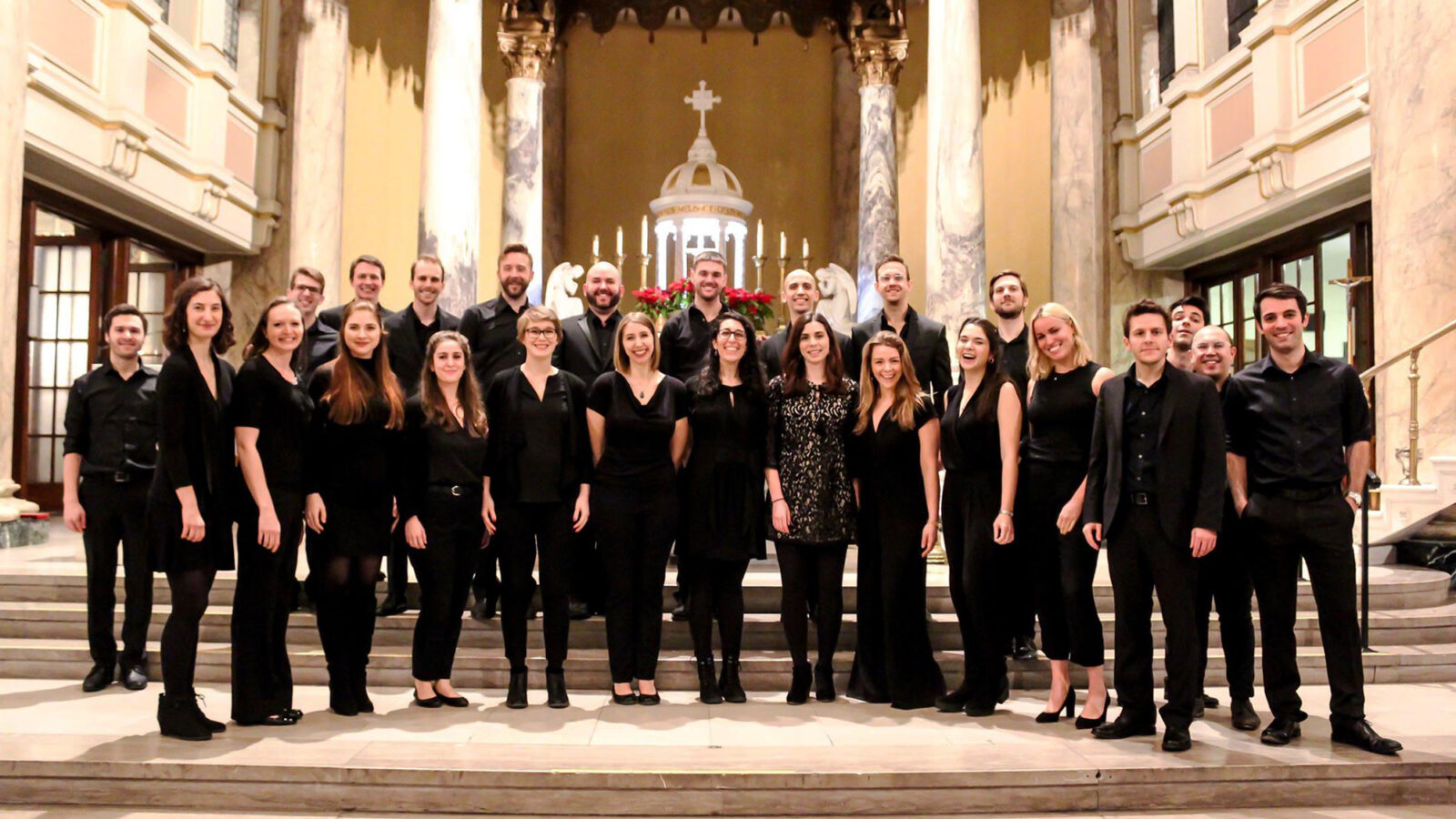
Stare at the Sun (Photo: Carl Alexander)
Stare at the Sun takes the honor of newest ensemble on the list, performing its first concert January 2019. Co-founders A.J. Keller and Hannah Rosa Schiller founded this flexible contemporary choir not just to perform new works, but to frequently commission them. A case in point: its first program commemorated the 50th anniversary of 1968, a tumultuous year with an especially troubled legacy in Chicago, and included a newly-commissioned work by local composer Nicholas Cline.
Expect more experiences like January’s concert, and then some. “Most groups aren't really asking the question, ‘What does a choral concert look like in the 21st century?’” Keller says. “We're interested in exploring unorthodox venues, concert formats, multimedia elements, and eclectic musical groupings in order to present the music we love in as relevant and meaningful a way as possible.” Visit website
[Editor’s Note: Schiller is WFMT’s 2019 Andrew Patner Fellow.]
Third Coast Baroque
Year founded: 2016
Recommended for: HIPsters (as in Historically Informed Performance)
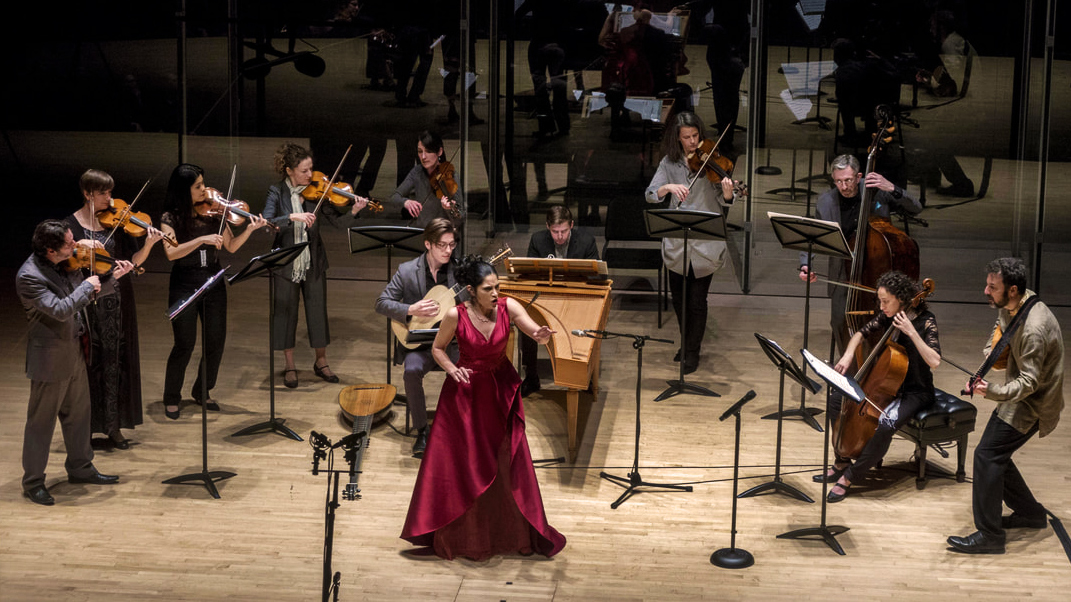
Third Coast Baroque in performance with mezzo-soprano Vivica Genaux and guitarist Brandon Acker (Photo: Charles Osgood)
In just a few short seasons, Third Coast Baroque has established itself as a major player in Chicago’s early music scene. Executive director and cofounder Angela Young Smucker credits the ensemble’s success to its global outlook — imparted by Vienna-based artistic director Rubén Dubrovsky — and a “21st century perspective.”
“We sometimes think of these pieces as museum pieces, but when we work on them together, they become these malleable, visceral experiences for audiences and musicians alike,” Smucker says.
Plus, if you have a hankering for centuries-overdue local premieres, Third Coast Baroque specializes in the offbeat and overlooked — everything from obscure Austrian baroque tunes to a never-heard-in-Chicago Handel oratorio. Visit website
Thompson Street Opera
Year founded: 2011, moved to Chicago 2016
Recommended for: first-time operagoers spooked by gilded auditoriums and 3+ hour run times
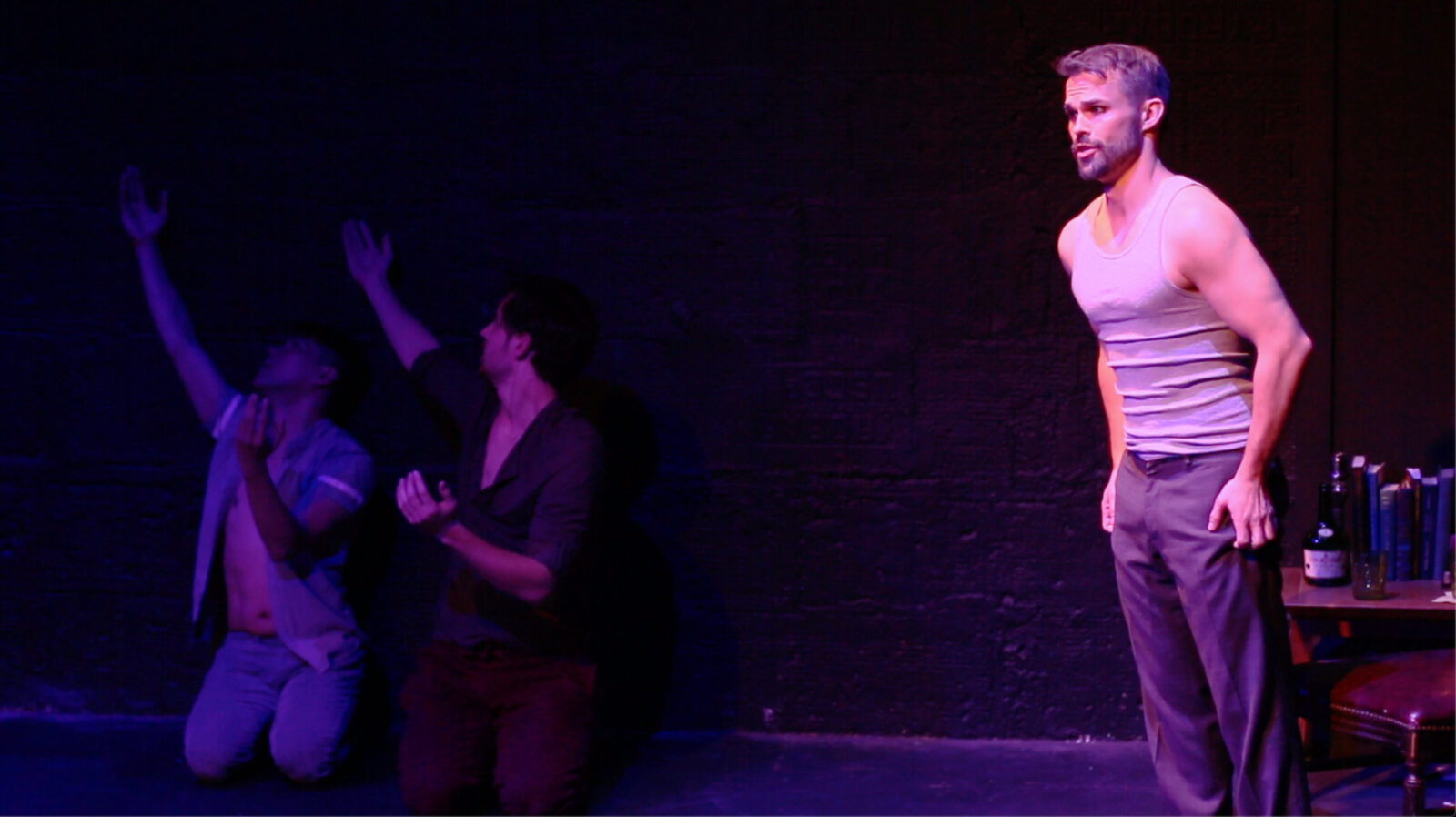
Thompson Street Opera's production of When Adonis Calls
Thompson Street Opera is a little company that that takes big risks. Facing the same budget challenges as other small arts organizations, it keeps two goals front of mind: staging recently composed works and paying artists a fair wage.
And if you’re furrowing your brow wondering where Thompson Street is in Chicago, you’re not losing it. The group is named after a residential street in Ann Arbor, where the group was run out of a studio apartment before moving to Chicago via Louisville. So why keep the name, eight years, three cities, and some 25 operas later?
“It best communicates the ethos of Thompson: that great art can come from the humblest of places,” explains executive director Claire DiVizio. “Quality comes from the labor, skill, and commitment of the people involved, not how big and shiny the room is in which music happens.” Visit website
Unsupervised
Year founded: 2018
Recommended for: rebels and mavericks everywhere
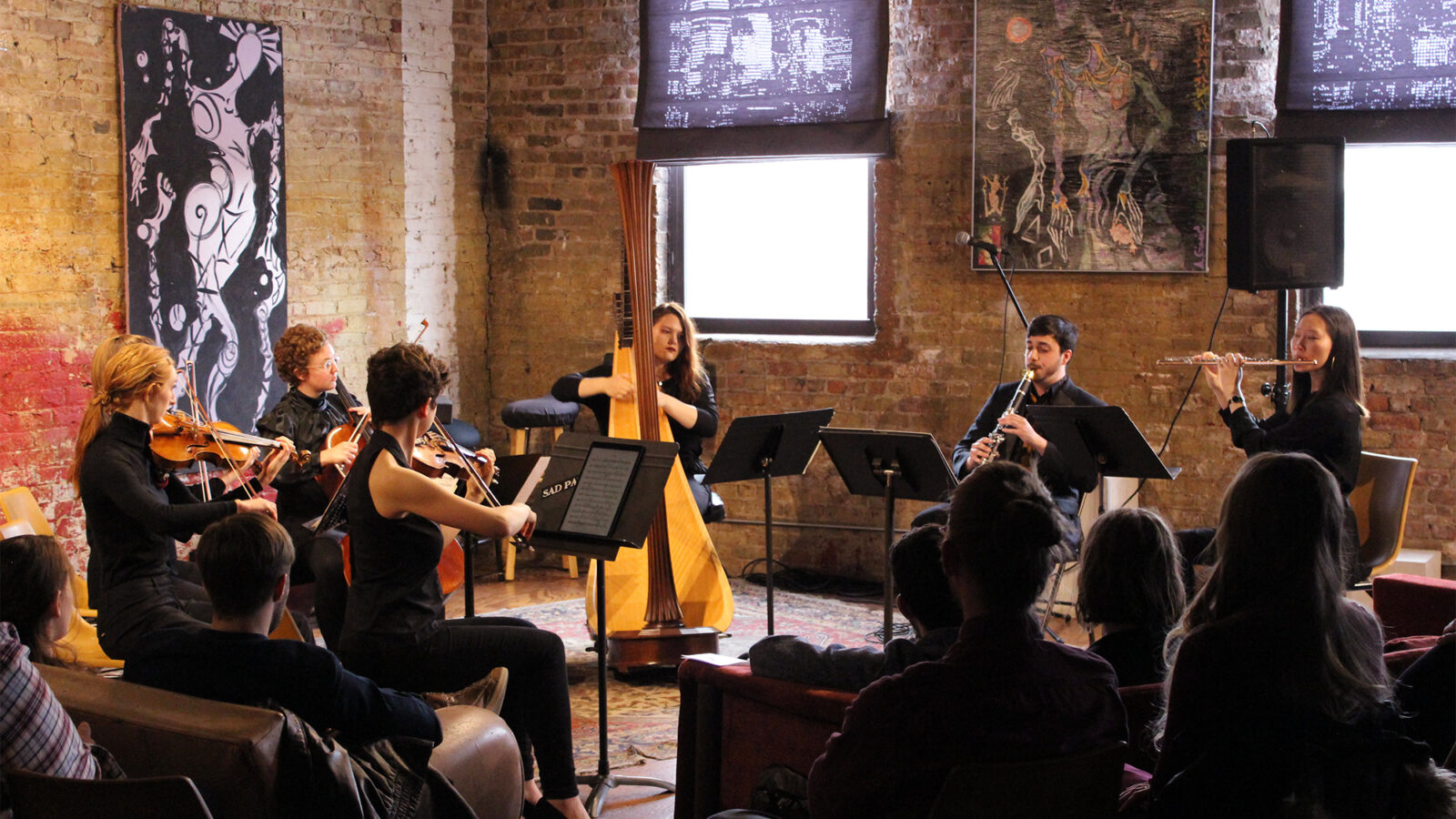
Unsupervised (Photo: Caleb Neubauer)
In 2017, a handful of Civic Orchestra musicians convened at violinist Hannah Christiansen’s apartment. They were disenchanted with the politics and pomp of conductor-led ensembles but loved being in a group with a meaty, orchestral sound. That apartment party ended up being the genesis of Unsupervised, a conductorless chamber orchestra.
Not only does the group perform larger-scale works by Beethoven and Ravel with a chamber sensibility, but each member also participates in programming. New music buffs will be heartened to see that contemporary works aren’t being given short shrift in Unsupervised’s seasons so far. According to bassist and founding member Jessica Wolfe, “ever evolving” programming was always a core part of Unsupervised’s mission.
“Performing in an orchestra with a conductor is always rewarding, but Unsupervised really puts the creativity in the hands of the musicians,” Wolfe says. Visit website
Zafa Collective
Year founded: 2016
Recommended for: social justice-oriented music lovers
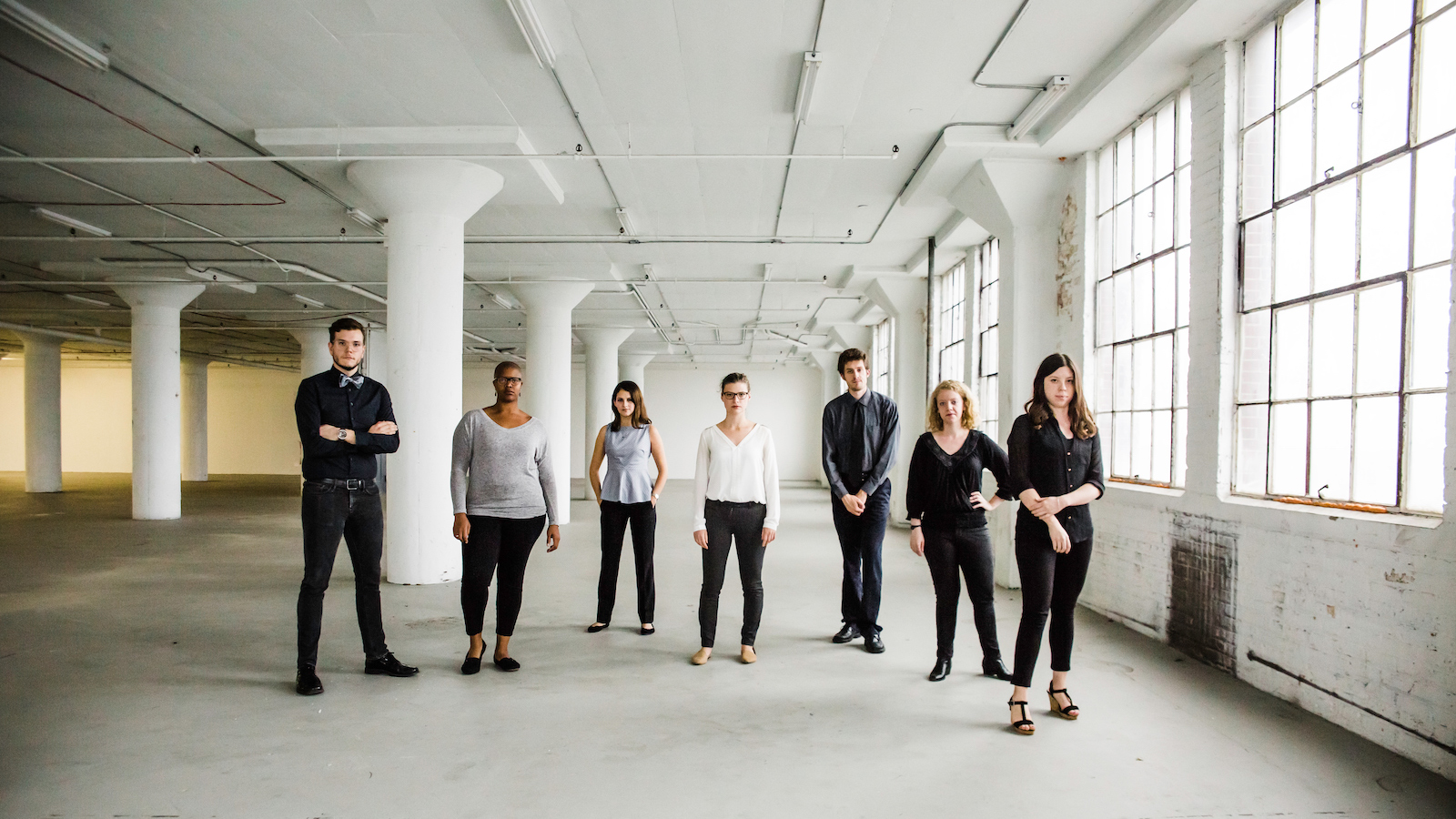
Zafa Collective (Photo: Brittany Faith Photography)
Some ensembles are born from shared circumstance; others, tried and true musical partnerships. But Zafa Collective’s seeds were sown when co-founder and artistic director Hannah Christiansen, then in undergrad, picked a fight — with a faculty member at Oberlin, no less.
“It was about a chamber music series that had been put on by the school that was all just old dead white dudes,” she remembers. “I didn’t have the language to talk about it back then, but I knew it wasn’t OK.”
Though the festival programming ultimately didn’t budge, Christiansen knew she’d struck upon something worth fighting for. Not long after moving to Chicago to pursue her master’s, she founded Zafa Collective, with inclusive, extra-canonical programming at the core of its mission statement. Chances are you’ll hear something new at Zafa’s concerts, which tend to be starbursts of local premieres. Ideally, Christiansen contends, that wouldn’t be the case.
“We’re trying to do a lot of diverse programming without making a big deal of it,” she says. “Our mission shouldn’t be out of the ordinary at all.” Visit website
What’s a new ensemble you love that didn’t make our list? Sound off in the comments below.

